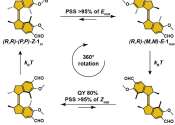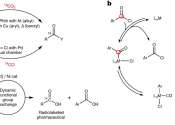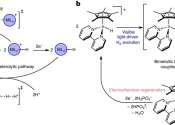Nature Chemistry is a monthly journal dedicated to publishing high-quality papers that describe the most significant and cutting-edge research in all areas of chemistry. As well as reflecting the traditional core subjects of analytical, inorganic, organic and physical chemistry, the journal also features a broad range of chemical research including, but not limited to, catalysis, computational and theoretical chemistry, environmental chemistry, green chemistry, medicinal chemistry, nuclear chemistry, polymer chemistry, supramolecular chemistry and surface chemistry. Other cross-disciplinary topics such as bioinorganic, bioorganic, organometallic and physical–organic chemistry will also be featured. The submission of manuscripts detailing multidisciplinary research performed at the interface of chemistry and other scientific fields of inquiry such as biology, materials science, nanotechnology and physics is also encouraged, where the central theme of the work — and the major advances that are reported — fall within the bounds of chemistry.
- Publisher
- Nature Publishing Group
- History
- 2009--present
- Website
- http://www.nature.com/nchem
- Impact factor
-
17.927
(2010)
Some content from Wikipedia,
licensed under CC BY-SA









